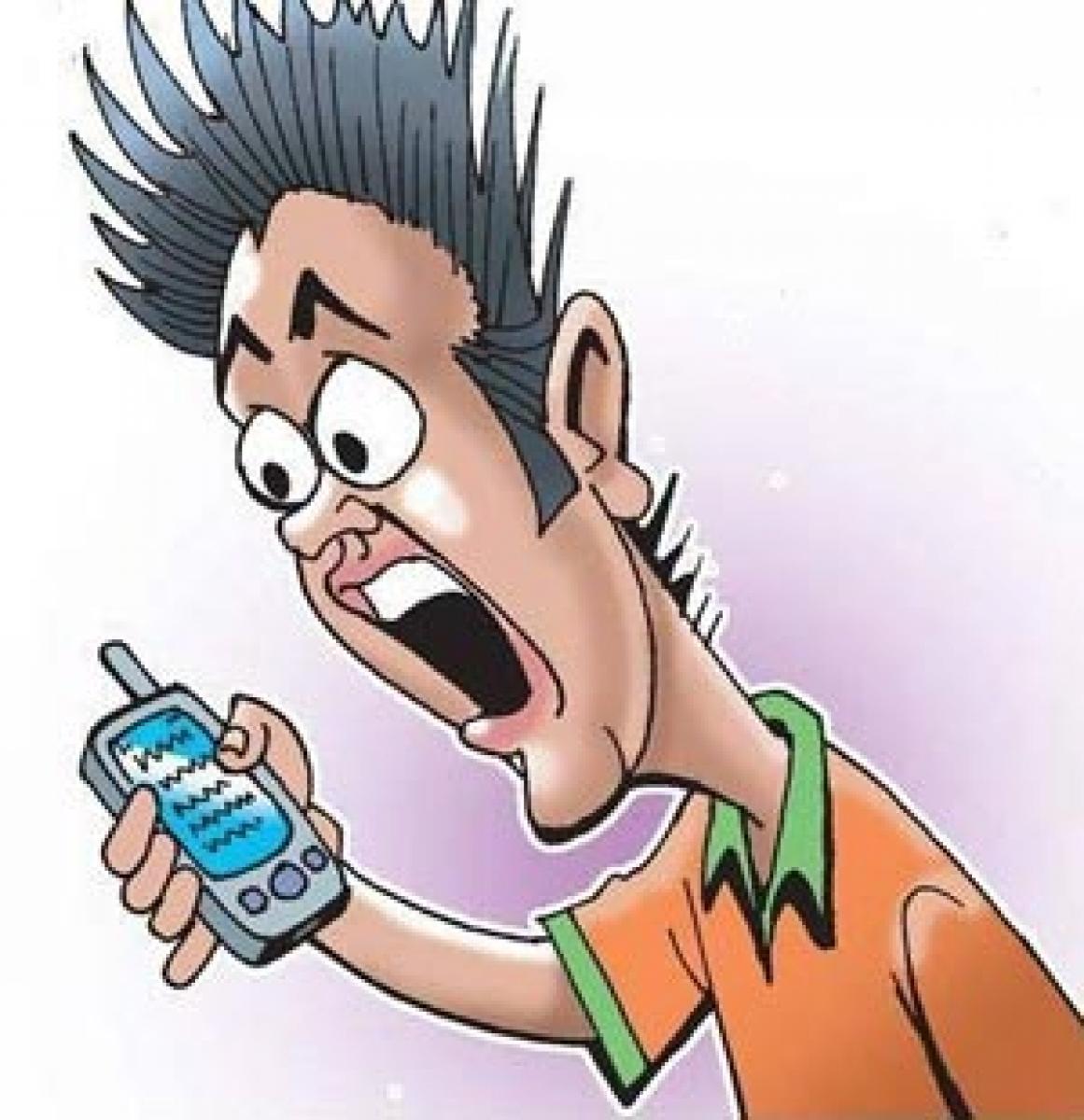Live
- Siddaramaiah has special love for Muslims: BJP
- We can’t afford spending less than 6% of GDP on healthcare
- Guinness World Record for continuous Hanuman Chalisa chanting
- REMOTE TRIBAL AREA TO GET NEW BRIDGE
- Dr LB College, Woxsen teams win in Climate Tank Accelerator event
- CM Revanth petitions for change in Paleru rly line
- Udupi MP seeks more key highways on top priority
- New diet plan rolled out at welfare hostels
- HRF demands for nation-wide caste census
- SP launches Medicover family health card
Just In

Naturally, the Telecom Regulatory Authority of India (TRAI) awarded Re 1 for call drop subject to a maximum of Rs 3 a day. And the operators cried foul as it would cost them Rs 200 crore per quarter (Rs 800 crore a year) which they thought was untenable logic. Yet, it also could be interpreted as the caller awarding Rs 800 crore bonus to companies for their poor service.
Telecom consumers pay for their inability to have services
The blemish in India’s much-lauded telecom revolution is a widely recurring phenomenon called “call drops.” In a country which is the world’s second-largest mobile user market after China, fast-paced expansion coupled with inadequate infrastructure and overloaded networks is leading to many callers being cut off mid-sentence!
Naturally, the Telecom Regulatory Authority of India (TRAI) awarded Re 1 for call drop subject to a maximum of Rs 3 a day. And the operators cried foul as it would cost them Rs 200 crore per quarter (Rs 800 crore a year) which they thought was untenable logic. Yet, it also could be interpreted as the caller awarding Rs 800 crore bonus to companies for their poor service.
Pertinently, it is not a loss to the operators but what TRAI suggested is a cap on their illicit and unethical income. Though nobody has directly accused the operators of doing it deliberately, many alleged that they were increasing their earnings by engineering the drops or call disconnect. Any wonder the High Court upheld the TRAI order and found the telecom services deficient.
Notably, even this scribe during his visit to the Simhasth Kumbh early this month found disconnects while trying to make a call or receiving one. And each time, if one was also on roaming, the charges were being deducted. Shockingly, internet services on a phone too were not working but when one tried to connect, one was losing money to the operators despite one being unable to use the services.
Moreover, this is not only embarrassing, irritating but also frustrating. Does one pays for his inability to have services? This is queer. Technically speaking, a call drop represents the service provider’s inability to maintain a call, either incoming or outgoing, once it has been correctly connected. Undeniably, in India, call drops are a performance indicator for the country’s telecom networks.
In many cities, mobile users have to rush from one room to another or drive around neighbourhoods to find better signals and better voice quality. Some angry users are going so far as accusing telecom services providers, who charge for a call by the minute, of deliberately engineering call drops to increase revenues.
Alongside, India is adding millions of new mobile users each quarter and the country’s active subscriber base of 869 million is fast closing in on a billion. However, telecom operators have been unable to adequately ramp up infrastructure and technology to keep pace.
The Supreme Court’s latest ruling has come as a surprise. True, the learned judges know the law better, but the common man fails to understand the logic how a caller is responsible for the call drop or for that matter a call disconnecting. It is also difficult to understand why a caller would disconnect a call. For each such disconnection, a caller pays penal charges. In other words, his “folly”, if it is so, as per the ruling, enriches the operator.
The Apex Court asserted that TRAI’s ruling of imposing a penalty of Re 1 was illegal. Holding the telecom authority responsible for failing to explain the reasons for fixing a Re 1 compensation for each call drop and a cap on three call drops per day, the court stated the regulation is based on mere guess-work.
This may be so. In the whole debate however, one thing which has not been discussed is how much the callers are losing a day and what are the hefty earnings of the operators? In sum, the judiciary needs to review its ruling. The issue is not about scoring a law point. It is about propriety and principles of natural justice. Getting redressal for a corporate ‘mistake’ is difficult.
TRAI awarded Re 1 for call drop subject to a maximum of Rs 3 a day. And the operators cried foul as it would cost them Rs 200 crore per quarter (Rs 800 crore a year) which they thought was untenable logic. Yet, it also could be interpreted as the caller awarding Rs 800 crore bonus to companies for their poor service

© 2024 Hyderabad Media House Limited/The Hans India. All rights reserved. Powered by hocalwire.com







